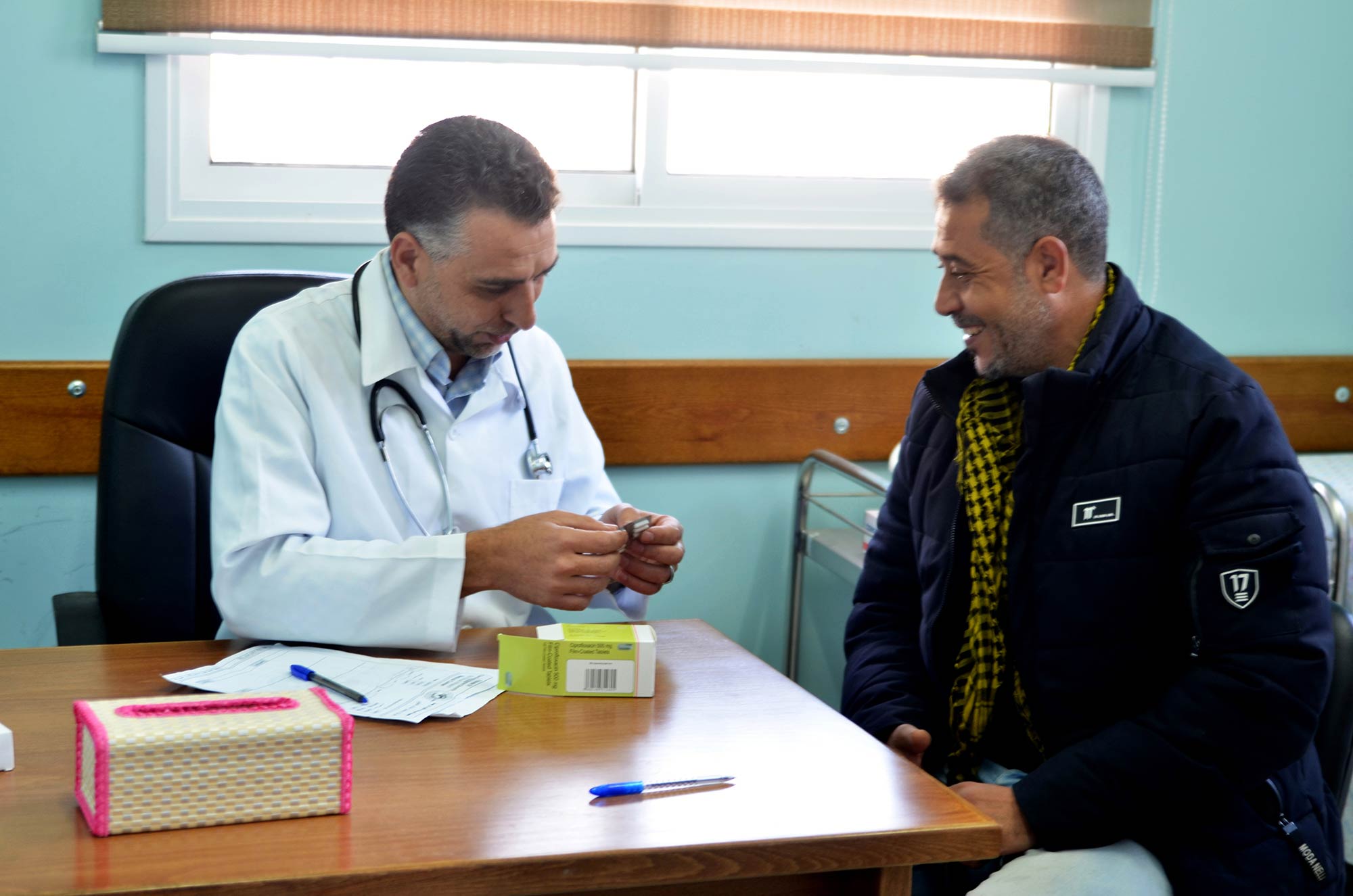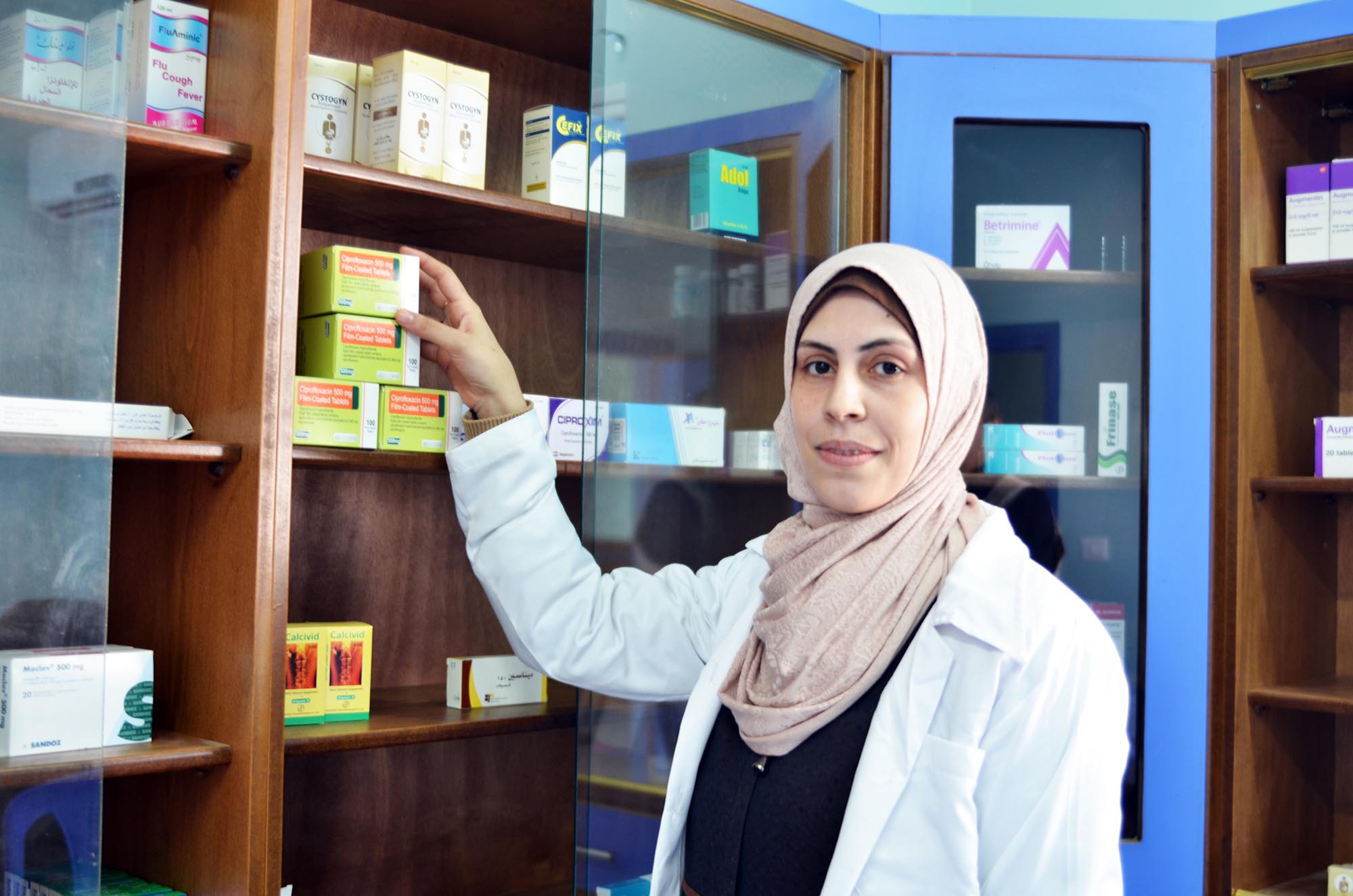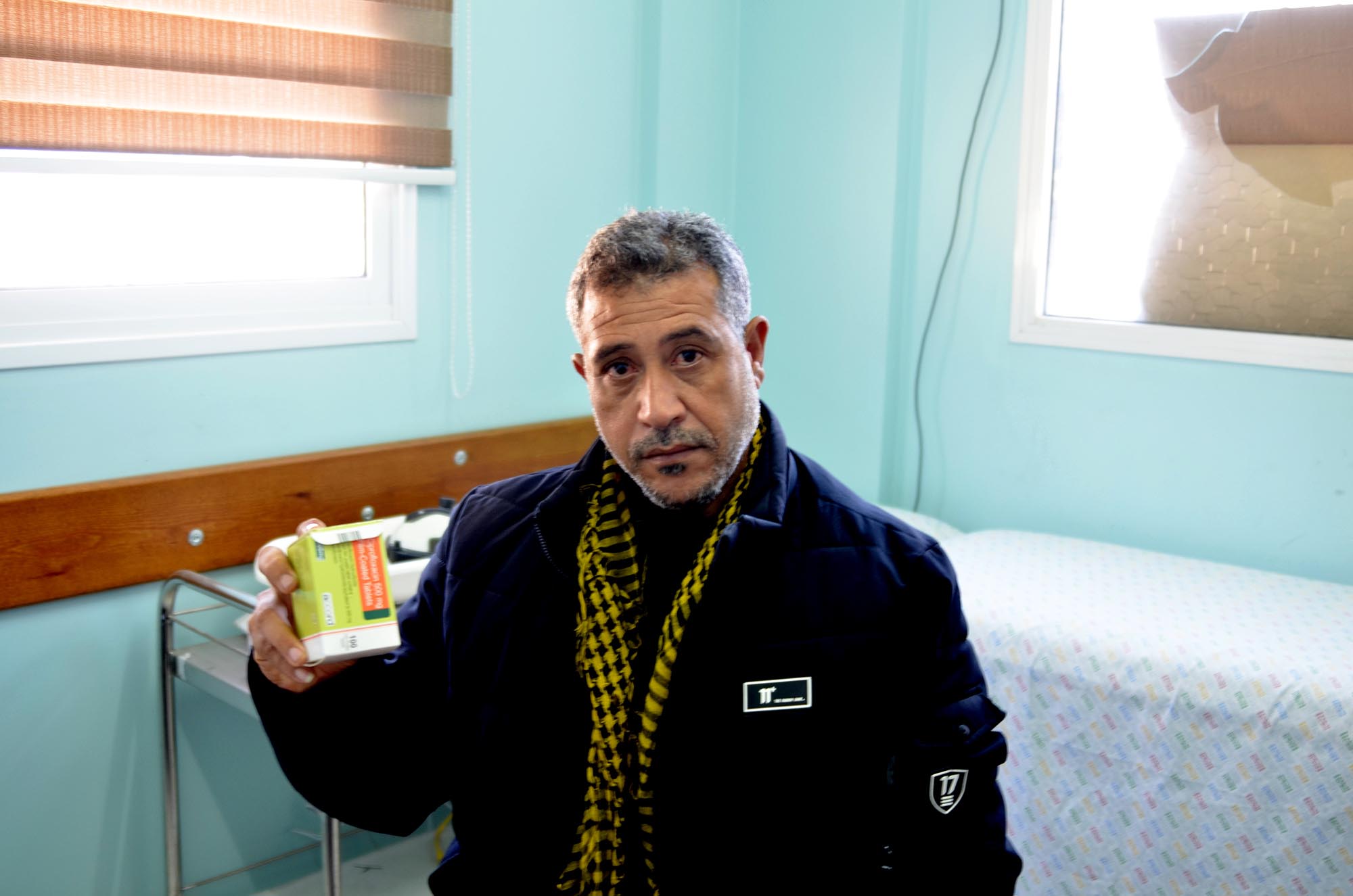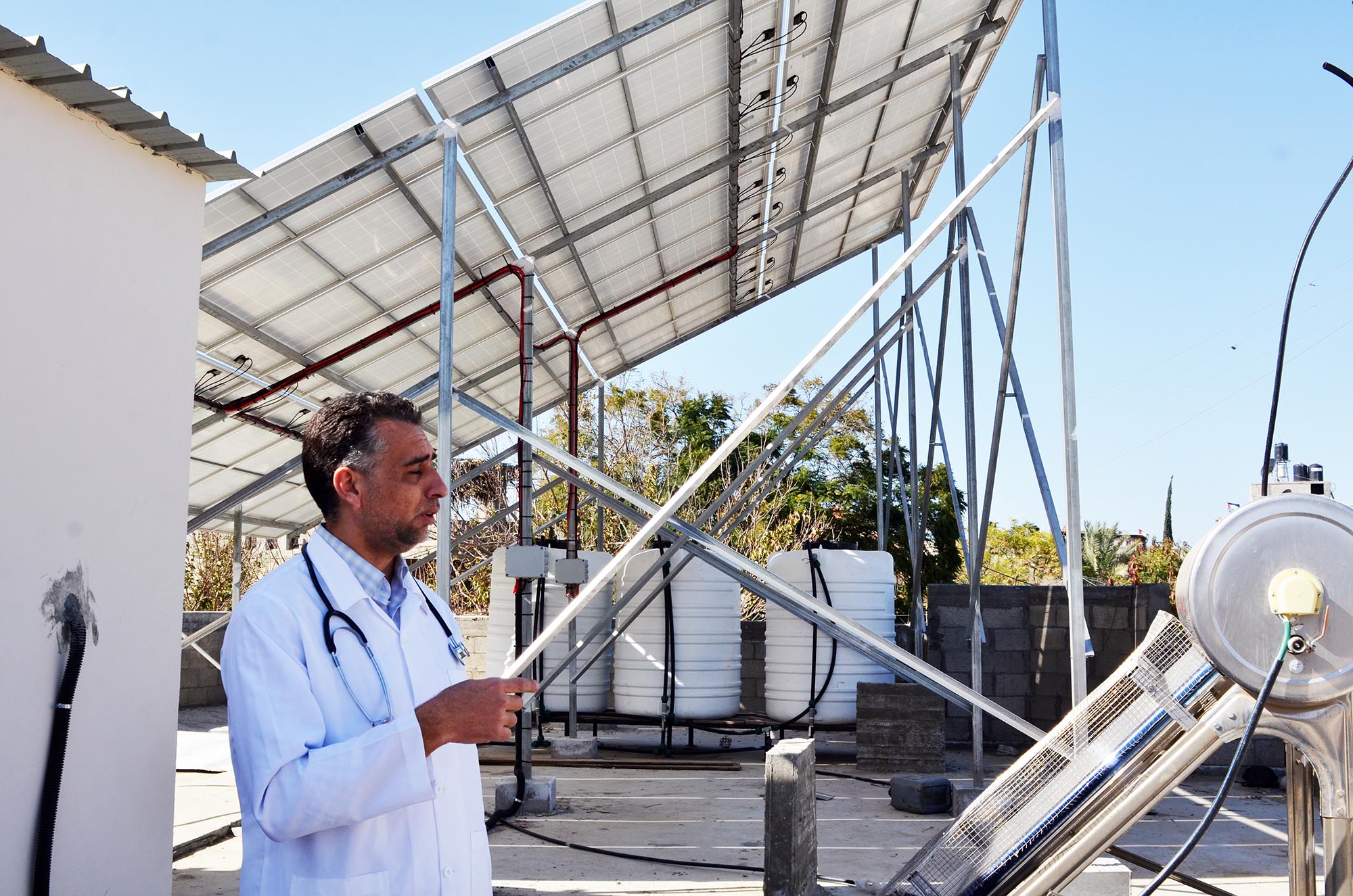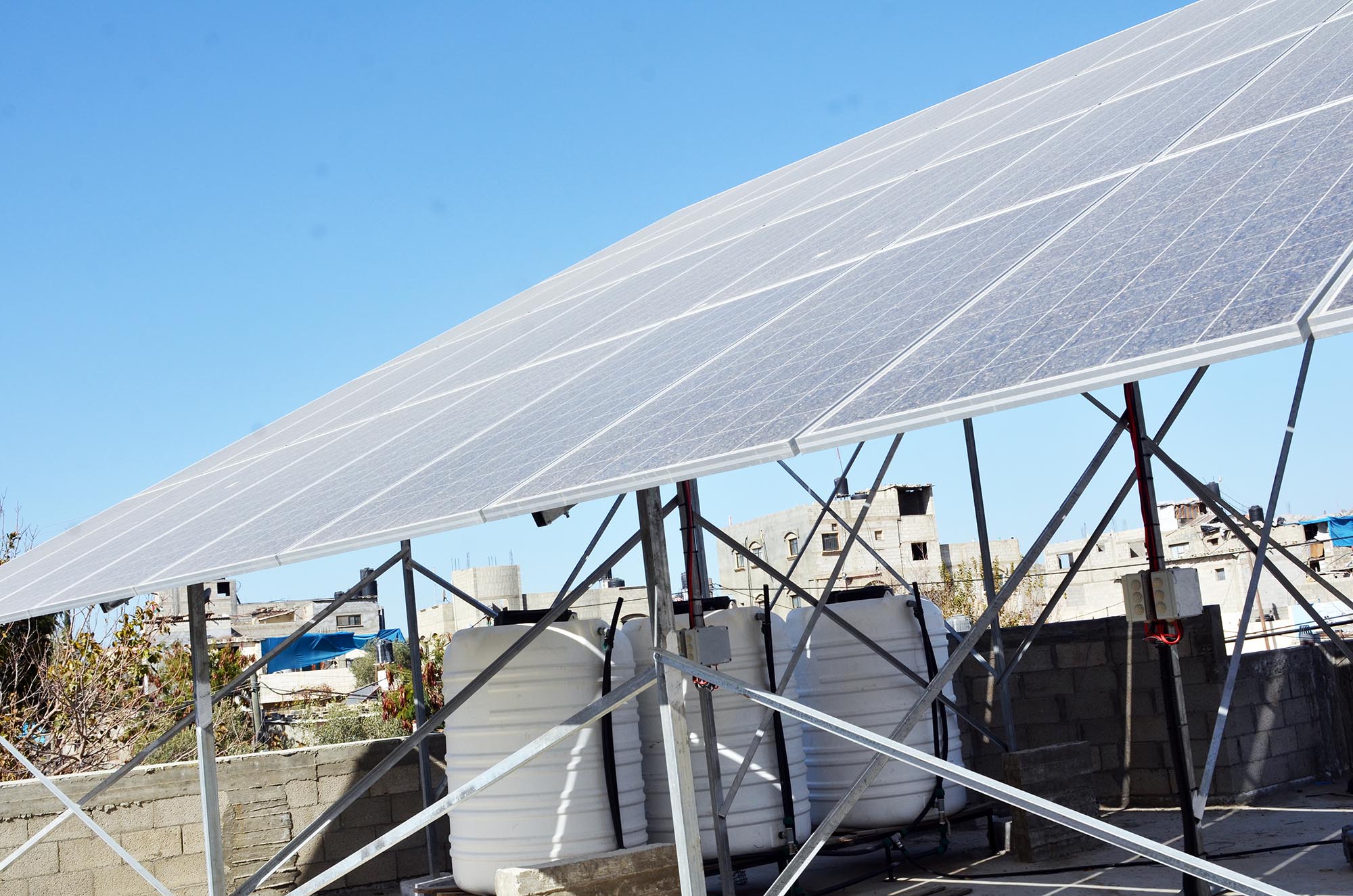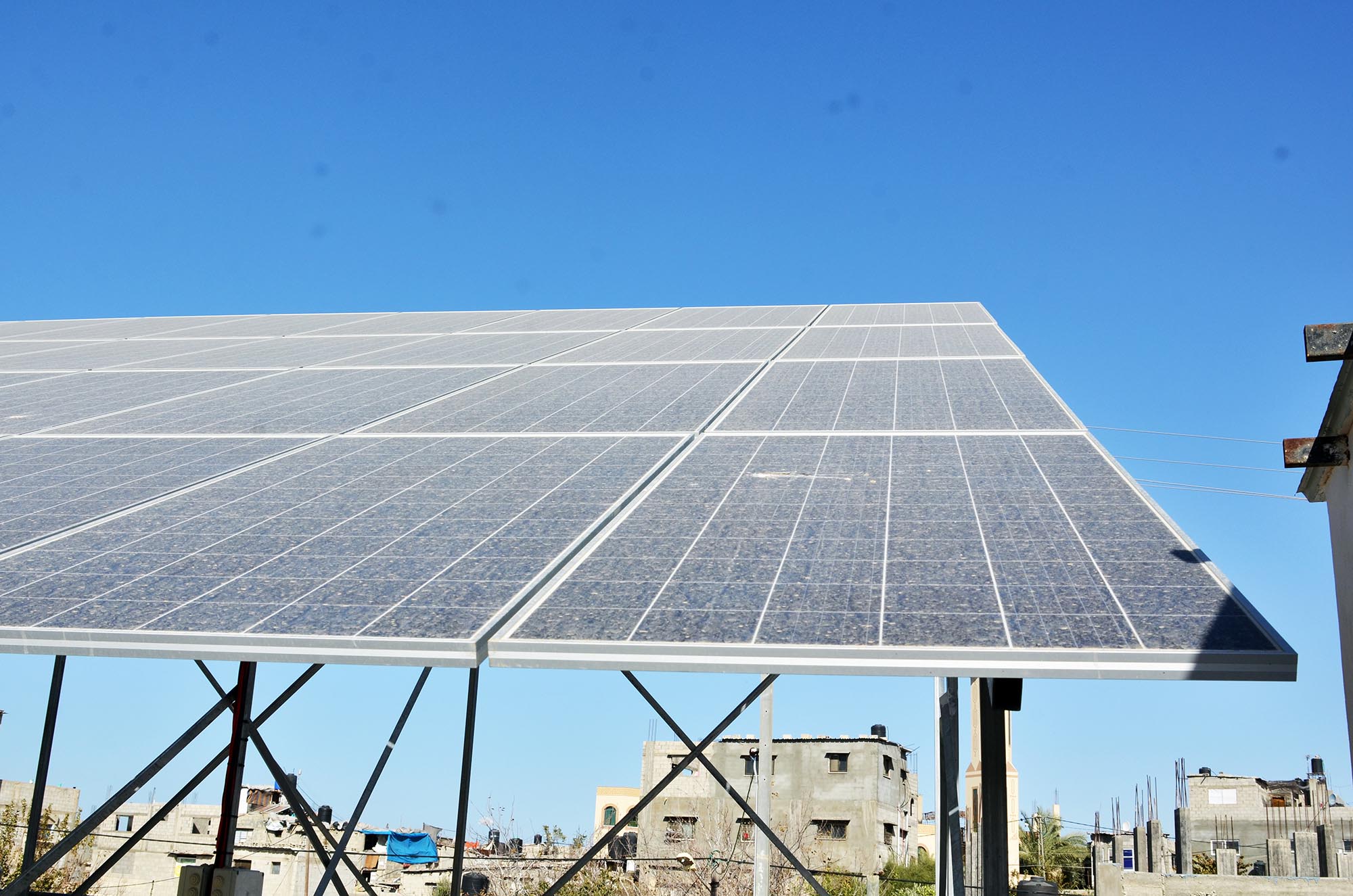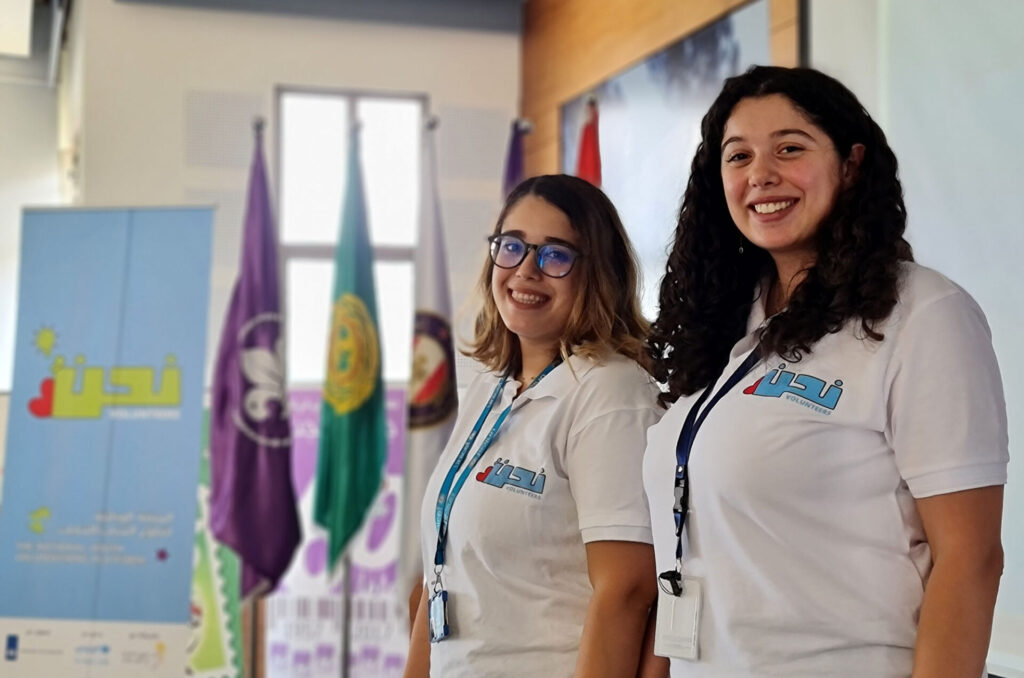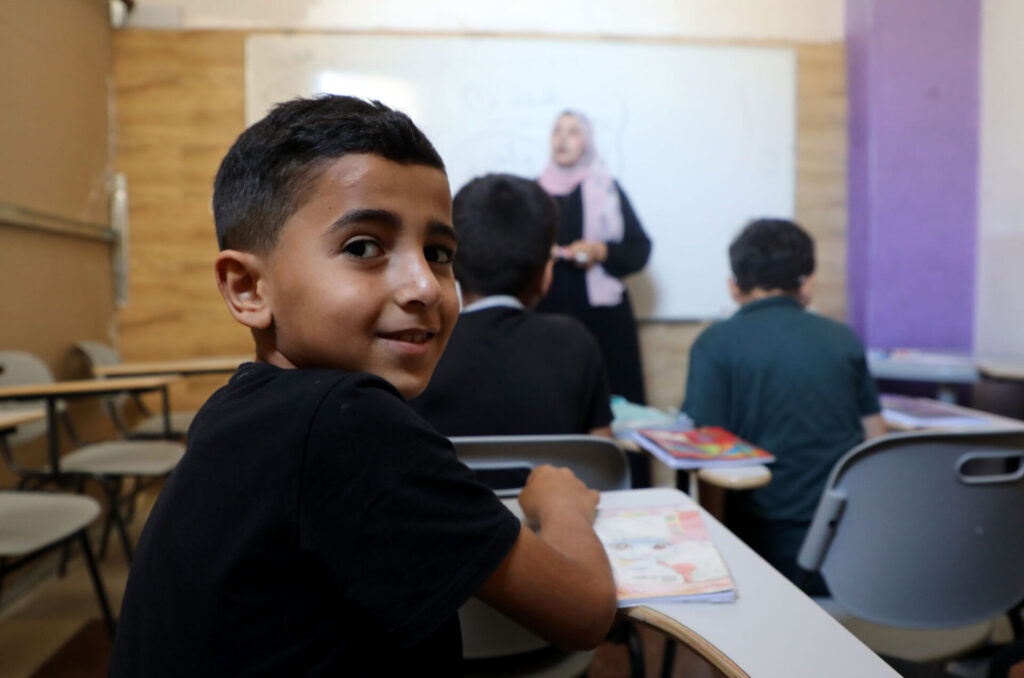HEALTH
Medicine and Solar Panels Bring Relief to Beit Lahia, Gaza
Jan, 2019
“The renewable energy system will improve the quality of our services… and allow us to focus on our patients.” - Sami, lab technician. The installation of solar panels and a recent donation of vital medicines help ensure that patients in northern Gaza receive the medicine they need.
Donated Medicine Help Beit Lahia Patients Access Quality Health Care
Families in the village of Beit Lahia in northern Gaza are dependent on agriculture. Communities in the area face a number of threats to their health and well-being, including shortages of medicines.
A failing sewage system has gravely impacted the health of residents. “Contaminated water is used for irrigation, which results in parasitic infections in infants,” says Hazem Humeida, a local physician at the Dr. Faysal Khaled Medical Center clinic in Beit Lahia. “Unclean water has massive repercussions,” Dr. Humeida observes. “The dirty water is why the number of urinary tract infections is so high in this community.”
Donated Medicine Combats Infections
Asma, a pharmacist at the clinic in Beit Lahia, the main healthcare facility in the area, laments that Gaza suffers from shortages of essential medicines due to a blockade on the region that has lasted over a decade. Pharmacies face low or empty stocks of chronic medicines and other types of medicine.
The experience of patients like Rafat, a local farmer, makes clear how essential the clinic is to the community. Rafat describes his experience managing a recent illness, “I was in agony. I had a serious urinary infection. I tried a number of medicines. They were all useless.”
Thankfully, he finally received proper treatment. At the clinic the doctor prescribed him ciprofloxacin, an antibiotic for bacterial infections.
Another local patient, Najla, related a similar experience of trying ineffective medications after contracting a severe infection and spending weeks in pain.
When proper medications are unavailable, patients are forced to try whatever they can afford. “The economic situation is terrible,” she explains. “We are a struggling community. Our reality is really painful.”
”When I came to the clinic and received this medicine that actually works, I felt so grateful,” says Najla.
Solar Panels Power Gaza Clinic
Thanks to the support of our donors, Anera recently provided and installed solar panels at the Beit Lahia clinic. Electricity shortages had long hindered operation of medical equipment at the clinic, particularly inside the lab where blood screenings and urine cultivation tests are conducted.
Because electricity is so scarce in the afternoon, Sami, a lab technician at the clinic, recalls that, “It used to be a challenge to work the second shift. Our daily tasks - doing tests and submitting accurate results - was suspended whenever the power went out.”
The solar system improves the quality of health services available in Beit Lahia, despite Gaza’s notoriously unreliable electricity grid.
Now, with the solar panels installed, the clinic is well lit during power cuts. “There were always power cuts at the clinic. It would put us behind schedule. Because of the solar panels, our equipment are operational every day,” Sami says. The new solar panels have also raised staff morale.
“The renewable energy system will improve the quality of our services, raise awareness about clean energy, save money and allow us to focus on our patients.” - Sami
A recent donation of vital medicines from International Health Partners (IHP) has resupplied this clinic as well as 15 others and will help ensure the people of Beit Lahia receive the medicine they need. Anera distributed the in-kind donation to the 16 clinics across Gaza.

